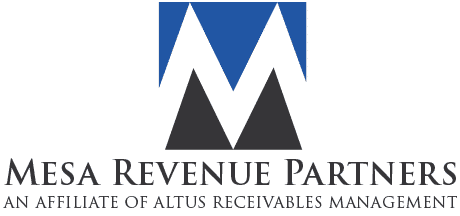The Importance Of Clear Payment Communication To Prevent Delays & Protect Business Relationships
Effective communication is crucial in any business relationship, especially when it comes to payment expectations. Clearly outlining payment terms improves trust and ensures that both parties are on the same page.
Businesses should establish these expectations upfront to prevent misunderstandings and delays in payment. This is particularly important for companies that may eventually need help from a commercial collections agency to recover outstanding debts.
To learn more about this topic, we created this article with practical strategies to communicate payment expectations effectively, helping to create a smoother billing process and maintaining positive client relationships.
Defining Payment Terms: How To Set Clear Expectations For Timely Payments
One of the fundamentals of receiving payment on time is clearly defining your conditions of payment. Whether it’s a certain day or a timeframe, you have to give your consumer a deadline.
Some frequent words include Net 30, Net 15, and Due on Receipt. You can optionally specify the date you expect your money to be received. In essence, it’s crucial to let customers know when you expect to be paid.
Best Practices For Setting Payment Expectations & Avoiding Client Disputes
Implementing the following practices can help establish a positive payment culture and reduce the likelihood of disputes.
- Be Clear & Concise. Clearly outline payment terms in your contracts, including due dates, acceptable payment methods, and any late fees. Use straightforward language to avoid confusion.
- Provide Written Documentation. Depending on your business, you may wish to present a written agreement. It does not need to be lengthy, but it must include the terms of service and payment expectations. You may want to have your attorney draft a basic agreement.
- Be Verbal With Your Clients. Informing your customer in person about payment expectations is as basic as it gets. Payment terms can be discussed during your initial consultation or at any other meeting. Verbal communication can complement any form of written agreement, and customers can ask clarifying questions.
- Set Reminders: If clients do not pay on time, it is critical to give polite reminders. Some companies have discovered that sending reminders as the due date approaches is also useful. You can use email, a paper statement, or a polite phone call to check on payment status.
- Review Regularly: Periodically revisit payment terms with clients, especially for ongoing projects. This ensures that both parties remain aligned and allows for adjustments if necessary.
Approved Payment Methods: Offering Flexible Options To Speed Up Client Payments
You need to be clear about the payment options your company takes to improve your chances of receiving money on schedule. Needless to say, there are many ways to take payments from your clients.
Naturally, cash is king, but checks can also be quite useful. You can give your consumer a return envelope or take these in person. Make sure you are taking debit and credit cards, and invest in cutting-edge technology. Additionally, the use of digital wallets like Apple Pay, PayPal, and Venmo is growing. In other words, we recommend giving different choices to your customers.
Late Payment Policies: How To Protect Your Business From Delayed Payments
Even though the word “consequences” is harsh, you need to specify what will happen if a payment does not arrive as expected. Not only should these be stated in writing on every invoice, but they should also include information about your late payment policy in any agreements you may have, which are highly advised depending on your type of business.
Certain late payment policies include interest charges, late fees (such as a fixed cost or a percentage of the invoice amount), and service suspension if nonpayment or lateness continues. You can even include the possibility of engaging in debt collection after a predetermined amount of time, like sixty days.
Billing Frequency & Intervals: Structuring Invoices For a Consistent Cash Flow
It is good business practice and accounting principles to specify how frequently and when you will issue invoices. That decision is up to you and your bookkeeper or CPA, depending on your business. The most common intervals are weekly, bimonthly, and monthly.
You can even set certain billing dates, like the first of the month. Other industries, such as trades and the repair industry, issue invoices on the spot. It’s critical to define when your consumer will get an invoice.
How To Choose a Reliable Debt Collection Agency To Ensure Prompt Payments
There will be occasions when your greatest intentions and methods will not be enough to persuade a consumer to pay. Your consumer may be experiencing financial troubles or an invoice dispute, and they are unsure how to approach your company about it. That is why it is best to work with a commercial collections agency in Mesa that specializes in your industry.
At Mesa Revenue Partners, we are ready to work with you to guarantee prompt payments and improve your company’s financial future. Contact us today to learn more about our services!








